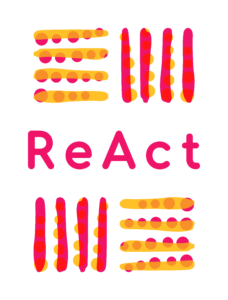What is money lending?
Money lending is when someone lends or loans money with interest, with or without security (almost like a deposit). In Malaysia, money lenders are regulated under the Moneylenders Act 1951.

How do I know if a money lender is illegal?
The Malaysian government has a website where you can check if the money lender is a legal money lender: i-KrediKom. This website will show you if the money lender has a valid license to practice as a money lender.
Additionally, under Regulation 8 of the Moneylenders (Control and Licensing) Regulations 2003 all licensed money lenders must have listed somewhere:
- The license number and date of confirmation;
- The number of advertising permits;
- The name, address and telephone number of the money lender; and
- The interest rate offered
Under Section 5F of the Money lending Act, moneylenders must show their original license in an obvious or clear position in their address. If the money lender does not, they may face a fine or up to 5 years in jail (or both).
Therefore, if you are in a money lender’s shop and you are not sure if they are licensed or illegal, you can try to look for the license or you can ask the money lender for the license to confirm.
I think I have dealt with an illegal/unlicensed money lender. What should I do?
If you think you may have dealt with an illegal or unlicensed money lender, you can report the money lender to the police.
For migrant domestic workers (MDWs), it is risky to use an illegal or unlicensed money lender, even if the money lender is promising you easy loan approval and a big amount of money. The money lender may try to keep your passport or personal documents – such as your visa, passport or identity card. The money lender may also use threats or violence against you if you are unable to pay back the loan amount.
In Malaysia, it is a crime to operate a money lending business without a valid license. If found guilty, the owner of the money lending business may have to pay a big fine or go to prison (or both).
What should I look for when I am taking out a loan from a money lender?
The first step is to check whether the money lender you are dealing with is licensed. Then, you should take time to understand the money lending agreement.
There are two types of money lending agreements: unsecured lending agreement and a secured lending agreement.
Unsecured lending is generally a shorter loan (for example, the loan is paid back quickly) and it it usually given to people who have a stable job and income. In this type of loan, the borrower does not have to get security (a deposit) in exchange for the loan. The interest rate on the loan is generally higher.
Secured lending is given when the borrower has given a security (deposit) to the money lender – such as a valuable item (e.g. land, car, gold). Generally, the loans are longer term (for example, the loan is paid back over a longer period of time). The interest rate of secured loans cannot be more than 12% per year.
Is there a maximum interest rate?
Under section 17A of the Moneylenders Act 1951, the maximum interest that can be charged by a money lender is 12% per year for secured loans and 18% per year for unsecured loans.
Loans from friends: what are the rules?
Sometimes, instead of going to a money lender for a loan, it is possible that you may ask your friend, or your friend might offer to loan you some money. This is known as a ‘friendly loan’ and it is usually made between friends, family members or relatives. A friendly loan is informal, and might not be in a written agreement.
A loan from friends or ‘friendly loan’ is totally legal. This means that you can get a loan from a friend or family member, and that your friend/family member is allowed to ask you to repay the loan and also charge interest on the loan.
Because a friendly loan is legal, the Malaysian law sees the loan as a valid contract between the borrower and their friend/family member.
Friendly loan vs money lenders
A problem that might arise is when a person has been loaning money to multiple people and charging very high interest rates. Basically, it is when a person tries to claim that they are giving ‘friendly loans’ when they are really acting like a money lending business.
In Malaysia, the Moneylenders Act 1951 requires that only businesses and people who are properly registered under the law can carry out a money lending business. Without a registration, the lender is considered unlicensed and a ‘loan shark’.
Therefore, it is important to be careful when you are talking to someone who claims to be giving a ‘friendly loan’. If this person is acting more like a business, you should first check if the person has registered and been licensed under the law to carry out a money lending business before agreeing to the loan. Under the Moneylenders Act 1951, it is a crime to carry out a money lending business without a valid license, and anyone who is found guilty of this can be punished with a fine or prison for up to 5 years or whipping.
Effect of agreeing to a friendly loan from an unlicensed person
If you have agreed to a friendly loan with a person who is unlicensed, it is possible that the Malaysian court may find the agreement to be invalid. However, it is also possible that the Court might find that you still need to pay the loan back. If you are in this situation, it is advisable to get legal help from a lawyer or NGO.
What should I do if my friend asks me to loan money to them?
If your friend or family member asks to borrow money as a friendly loan, here are some things you should consider to make sure that you are not considered to be a money lending business. However, note that these tips are general in nature – it is best to get advice from a lawyer or NGO.
- Put the friendly loan in writing. It might be difficult to do this, because it is your friend or family member asking, but to protect yourself, it is advisable that you write out the loan agreement, including: the amount of money given, how much interest, and how your friend/family member will pay you back.
- Do not charge very high interest on your friend/family member. The interest you charge should be reasonable.
- Be clear about when you want your friend/family member to pay you back. Make sure that both of you understand the final deadline to pay, and if your friend or family member is paying in instalments, when the instalments must be paid.
Helpful tips
- Call the police (999) or an NGO if a money lender is threatening you
- If you come across an unlicensed money lender, you may consider reporting them to the police
- You may consider submitting a civil case in court for compensation (money) from the money lender if they have caused you loss. If you wish to do this, it is advisable that you seek legal help from a lawyer or NGO first.
- Don’t give out your employer’s personal contact details when applying for a loan. It is a common practice for unlicensed money lenders to call and harass MDW’s employers to repay the loan


